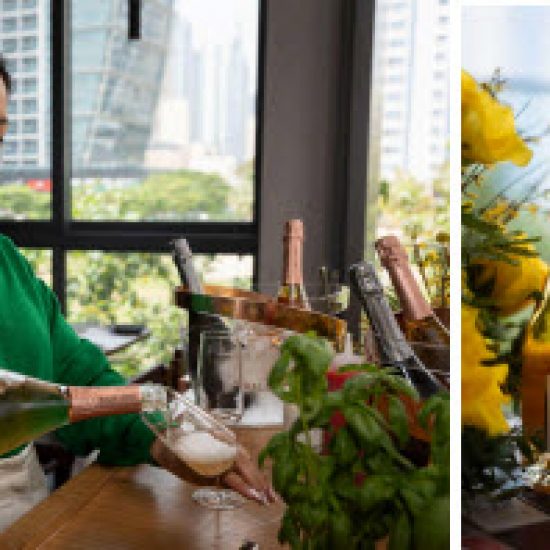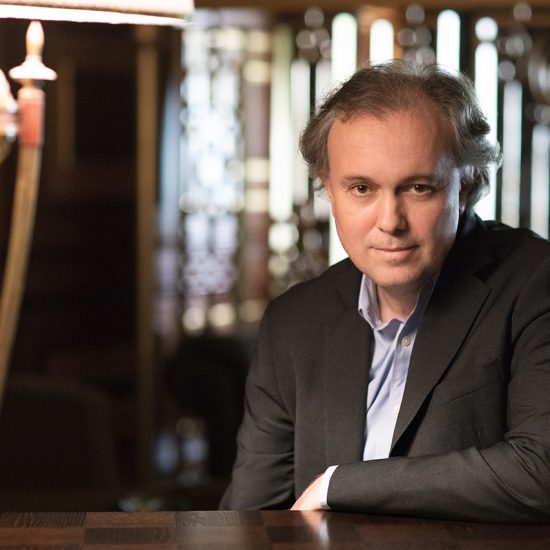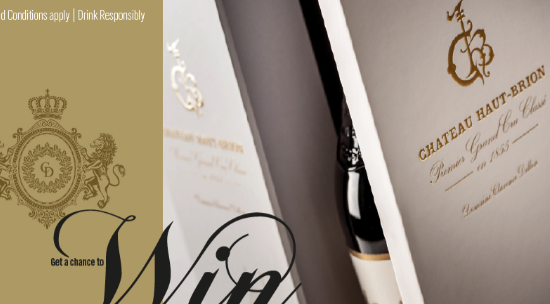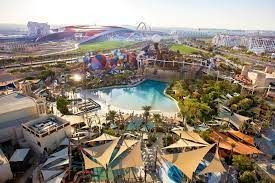
Tucked away in an inconspicuous building in Al Mamzar, some of the UAE’s most acclaimed thespians sit, drinking tea, writing and talking.
The building is split in two – one half, the Dubai Folklore Society, composed of traditional dance troupes, and the other, the Dubai Folklore Society Theatre, devoted to Emirati drama.
In a large, quiet room adorned with framed photographs and awards, Abdullah Saleh sits on the leather sofa, writing. He is among the first to arrive, and revels in the silence, before the regulars start to pour in.
When they arrive, his peers shake his hand and take a seat, while youths kiss his head – as a token of respect – before moving onto the next room to play billiards.
Saleh, 55, pulls up a photo on his phone of Dr Sheikh Sultan bin Mohammed Al Qasimi, Ruler of Sharjah, presenting him with an award for best actor in the UAE.
“Now I have nine of these,” he reflects. “But how did I earn them? Step by step. You have to pay your dues.
“If you’re not good to people, if you don’t come and even say ‘hello’ – this is not an actor.”
The dramatist won his first Sharjah Theatre Days award for best actor in 1996 for the play Dreams of Massoud.
The annual competition, founded in 1984, sees the UAE’s best theatre groups perform in front of a panel of judges from across the Middle East.
Saleh says Dr Sheikh Sultan has long been a patron of theatre groups – empowering artists and providing grants to facilitate them to take part in Sharjah Theatre Days.
“For me, the Dubai Folklore Society is my mother. There are many people in drama – they all know this group and the people who started here.”
The Dubai Folklore Society began in 1977, when Sheikh Rashid bin Saeed, the father of modern Dubai, provided a small theatre in Al Mamzar. In 1983, he granted a larger facility, which split into two entities in 2005.
Saleh’s drama career began somewhat unexpectedly in 1978, when, still a teenager, he dreamed of becoming a singer.
“One man, he told me if you want to follow your dreams, come here. But, when I came here everybody said there were no singers – only dancing and theatre.”
One month later, he took up acting and performed for the first time, in the fall of 1979. After his 1980 performance in Judge Model 80, a reporter shortened his name from Abdullah Mohammed Saleh to Abdullah Saleh.
“Now, all my friends say Abdullah Saleh. Nobody calls me Abdullah Mohammed – just my passport,” he says.
Saleh learnt under the tutelage of those who came before him, a tradition he has carried on. He travels across the country meeting artists, and since 1990, has hosted annual workshops.
He has written almost 40 scripts, directed 13 shows and starred in countless television dramas. “In 1980, I joined the dancing group, so I can dance too.”
Saleh is what Arabs call “fannan shamil” – the complete artist – and eventually pursued a brief career in music, releasing two albums in 1987 and 1989. It was a busy decade, one where all his “dreams came true”.
However, balancing his work at the Ministry of Culture and Knowledge Development with show business grew difficult, and in 1994, he ended his music career.
Though just 27, Hussain Aljassem knows too well the sacrifices the theatre asks of its performers.
“These older guys have worked for 20 years – they lost a lot of things in their lives to give a real message,” he says.
Aljassem is a member of Fujairah Theatre and was this year tasked with directing the emirate’s Martyrs’ Day ceremony.
His theatre career took off when he was studying applied business technology at Fujairah Men’s College. The university approached him to perform in a play and he was soon introduced to the gruelling routine of fitting theatre alongside his studies.
His efforts soon paid off when Abdulla Al Suwaidi, head of Fujairah Theatre, invited him to join the troupe.
Aljassem, who has directed two plays and acts in at least two a year, believes tragedy is harder to perform than comedy.
“Most directors here say that your audience must believe you are talking, not acting.
“You’re talking directly from your heart to these people.”
His favourite work is performing children’s plays. “How can you teach children the difference between right and wrong? It’s difficult.”
Although the older generation are generous with their support, he believes many young actors choose to forgo the exhausting theatre life for television.
“Last year, I was working in Abu Dhabi and I had a play in Fujairah. I finished work at 2pm, I drove to Fujairah, got there at 5pm, rehearsed until 11pm and then came back at 2am.”
Sometimes he will prepare this way for four months, all for a one-hour play.
“But,” he interjects, “if you love something, you will do it”.
Adel Ibrahim Ahmed has devoted his entire life to theatre. The 53-year-old joined the Dubai Folklore Society in 1975, having been invited by Khadem Suroor, who worked for Dubai Police and pioneered the emergence of theatre in Dubai. A day later, the 15-year-old’s mind was made up.
“When that man asked me: ‘Adel – do you love theatre?’ I didn’t know the meaning of theatre. I just told him ‘yes’,” he laughs.
Soon afterwards, a renowned Kuwaiti director was brought in to teach the aspiring actors. At the time, Kuwait had the regional edge with amateur plays staged there as far back as 1922.
“He only stayed with my group for two hours. But he taught us so many things – that was when we learnt the meaning of theatre.”
Later, Ahmed studied under the Tunisian Munsif Al Suwaisi. “In six months we learnt from him what people would learn in four years of college.”
A highlight from his career was a 1988 performance of Syrian playwright Saadallah Wannous’s adaptation of Naji Al Ali’s caricature, Handala, a Palestinian child.
Ahmed performed numerous roles in the play, at a festival in Damascus, as part of a competition among established theatre groups from across the Arab World.
Despite Wannous’s intimidating reputation, when he saw Ahmed’s group, he said: “Today I found Handala.”
Although he has worked in television and was part of the UAE’s 1984 record-breaking relay team, theatre has always been his great love.
“I believe one thing: for any actor, he must become the first liar in this world. Why? Because if I don’t make people cry when I cry, or smile when I smile, then I am nothing.”
He says Dr Sheikh Sultan has helped to propel Emirati theatre to the forefront in the Arabian Gulf.
“He sent me to Germany, Italy, Britain, America, to see their theatre; what they’re doing there; what new things they have.”
However, despite his success, the theatre has been a path of sacrifice.
“I left everything for the theatre,” he reflects. “I have paid everything from my own pocket – money, muscle, everything.”
He remembers when Al Ghurair was the only mall in Dubai. “Everyone went there, and if they didn’t want to go to Al Ghurair they would go to the theatre. But, now you have thousands of places you can enjoy yourself.
“Things are not like before,” he says. “In this time, people don’t want a message, they don’t want a plan, they don’t want advice – no, they want exactly to laugh. Only smile, joke, like that.”
Khalid Ali, a fellow Dubai Folklore Society Theatre member and an acclaimed film director, says: “I like comedy – why? Because outside the theatre you see all these problems and tragedy in the newspapers and television.”
Ali believes it is harder to make people laugh than cry on stage. “Ok, they’re crying outside – now they come to the theatre and they’re crying there too? People need a break.”
The 45-year-old started out as a theatre actor and graduated from film school in Egypt in 1992. This year, his film, Night, became the first ever Emirati entry to the Arab Camera Festival in Rotterdam.
While there are now more Emirati filmmakers than ever, he says tragic theatre has waned.
“Everybody wants to see a good story, but the audience wants to see problems that are relevant to them. In this country, people don’t need Hamlet.”
While it may not yet be a lucrative career choice, for the Emiratis who do brave the challenges, theatre is a calling.
“My life is on the stage,” says Saleh. “Somebody might ask me: ‘Tell me, what did you leave for your children?’ I tell them ‘nothing’. All the stars leave money – they leave buildings, they leave a car. But I leave love. Just love.”








